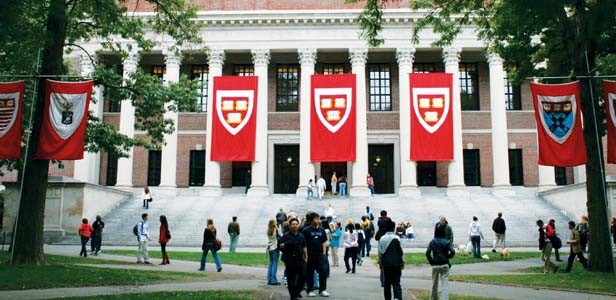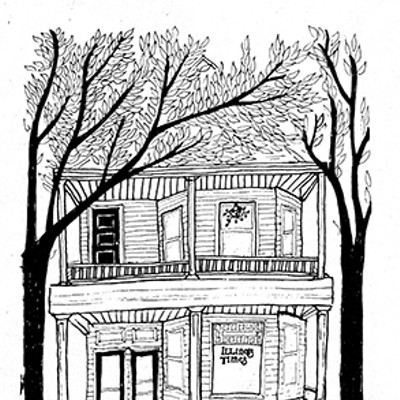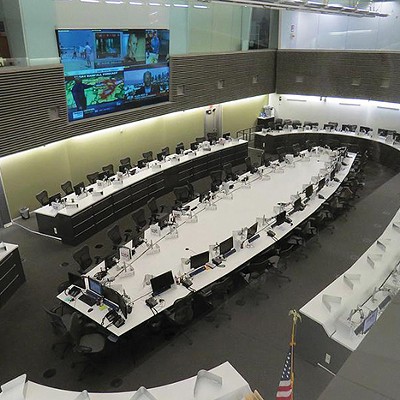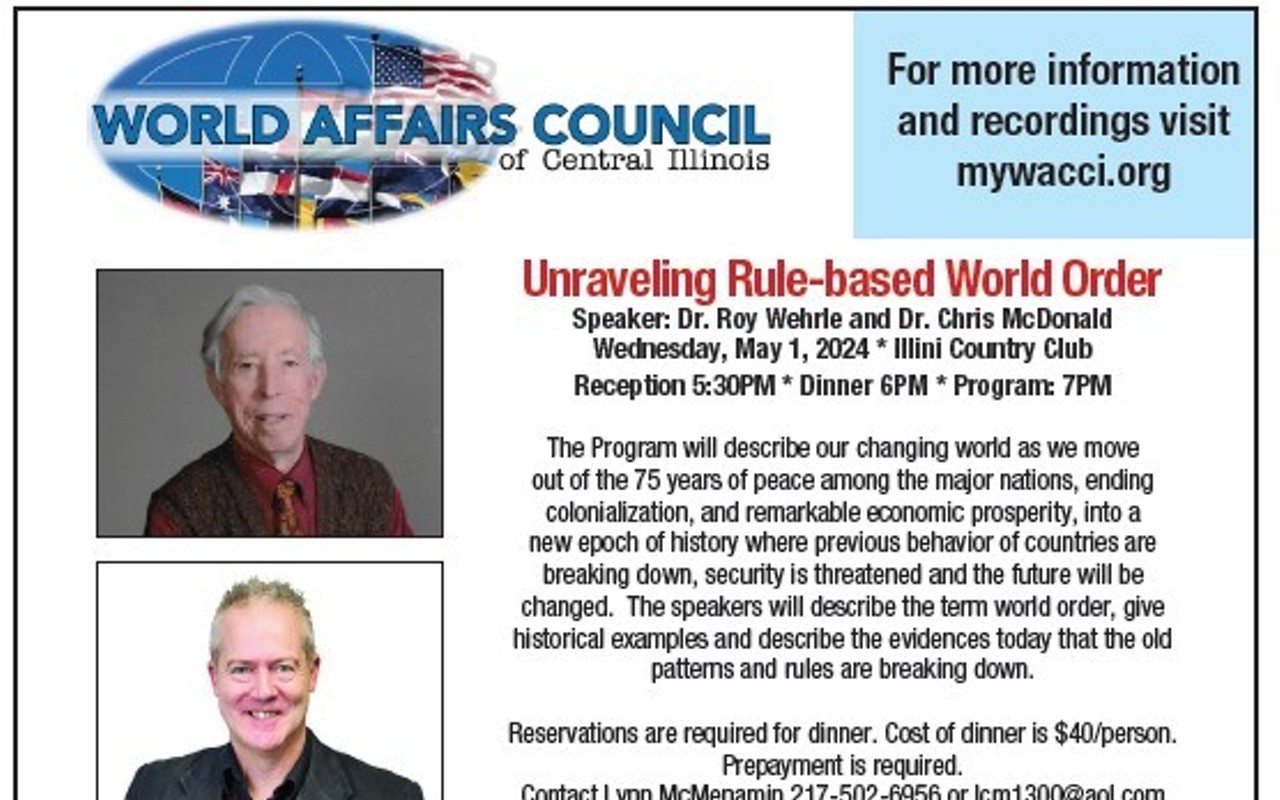Unicorns on the Sangamon
The scarcity of Harvard grads in Springfield
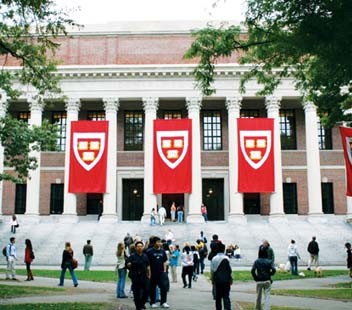
[
{
"name": "Air - MedRect Combo - Inline Content 1",
"component": "11490391",
"insertPoint": "3",
"requiredCountToDisplay": "1",
"parentWrapperClass": "fdn-ads-inline-content-block"
},{
"name": "Air - MedRect Combo - Inline Content 2",
"component": "11490392",
"insertPoint": "7",
"requiredCountToDisplay": "5",
"parentWrapperClass": "fdn-ads-inline-content-block"
},{
"name": "Air - MedRect Combo - Inline Content 3",
"component": "11490393",
"insertPoint": "12",
"requiredCountToDisplay": "9",
"parentWrapperClass": "fdn-ads-inline-content-block"
}
]
When asked by new acquaintances which of my many achievements I am most proud, I do not mention my bird imitations or my role (admittedly peripheral) in the Great Bran Flake Robbery in 1967. I tell them I am proudest of having won the Harvard Prize Book.
I do not tell them — it being inconsiderate to stretch these anecdotes to tedious length — that I won it in 1965, when I was 16, and that I never set foot on the Harvard campus until I was nearly 60, and then only to sight-see. The book is a handsome leather-bound book containing essays about Harvard life in its more edifying aspects. (They left out the bit about Crimsons advising presidents to get involved in Vietnam.) It has been awarded each year since 1910 to the mope in junior classes across the country who, in the opinion of his principal or guidance counselor, “combines excellence in scholarship and high character with achievement in other fields.” In plain English, a well-behaved grind, which was me all over.
The purpose of the book was to encourage talented students to apply to Harvard. Certainly there was a need for it, at least in Springfield, where Harvard grads were, and remain, as uncommon as unicorns in Riverside Park. Referring to the years of his youth, the late banker George W. Bunn Jr. once told an interviewer, “One of the interesting features of that period, I think, was the number of young men from Springfield who went East to college. Princeton was far and away the most popular college for those who went east, Yale was a pretty good second, Harvard a very poor third.”
If Springfield’s First Families disdained Harvard, imagine the attitude taken by those families to whom going east to college meant Urbana. All I knew about Harvard I learned watching Dobie Gillis. Thalia Menniger — think Thorstein Veblen in a poodle skirt — once explained, “Even if my father had kidneys of steel, my mother was younger than springtime, my sister was married to a trillionaire and my brother was president of Harvard, I’d still want money!” Thalia thus made it quite clear that Harvard was a big deal. When, in a different episode, Dobie cheated on a poetry exam to get into Harvard, it was clear that Harvard was a big deal I wanted no part of. (I later realized that the fact that poetry was something that one must know to get into Harvard was the writers’ little joke at Harvard’s expense; Dobie’s creator, Max Shulman, went to Minnesota.)
The Abraham Lincolns were never among Springfield’s First Families, of course, so they did not know better than to send their boy away to Cambridge at 16. It was asking a lot of Robert Todd Lincoln; one of Mary Todd’s biographers described as third-rate Springfield’s Illinois State University, the forerunner of Concordia Seminary where the boy studied. He failed 15 of 16 (some accounts say all) of the college’s entrance examinations and had to spend a year at Phillips Exeter Academy prepping in order to get in. Once there, Lincoln led the Harvard life. He joined a frat, performed in Hasting Pudding productions and (as he put it upon leaving in 1864) “studied enough to satisfy myself without being a ‘dig.’”
Lincoln did not return to Springfield — few Harvard grads from here do — but made his adult life in Chicago as president and board chairman of the sleeping car company belonging to the odious George Pullman. There the son of the man who always championed the right of the working man to enjoy the fruits of his own labor spent a life protecting a man who championed the right of owners to take that fruit away from them. Harvard grads often serve power, but it would be unfair to blame Harvard in this case. Young Lincoln was the eldest son of Mary Todd Godhelpher Lincoln, and thus heir to everything from her physique to her class prejudices.
A very different sort of Harvard man was Michael J. Scully (Class of ‘47). The owner of Cockleburr Farm outside Buffalo, Scully spent the final 20 years of life in Springfield. He was as close to landed gentry as central Illinois has had since, well, since his own grandfather died. He was the very model of what Harvard likes to think is the Harvard man — handsome, athletic, cosmopolitan. He lettered in soccer but excelled at rowing. (A man named Scully was clearly born to it.) Scully was the first man in four decades to win the major H crew four times, and in 1975, he and his fellow members of the 1947 team were enshrined in the Harvard Varsity Club Hall Of Fame.
Not quite the Harvard Prize Book, but I’m sure Mr. Scully did his best. We Harvard men always do.
Contact James Krohe Jr. at [email protected].
Illinois Times has provided readers with independent journalism for almost 50 years, from news and politics to arts and culture.
Your support will help cover the costs of editorial content published each week. Without local news organizations, we would be less informed about the issues that affect our community..
Got something to say?
Send a letter to the editor and we'll publish your feedback in print!

